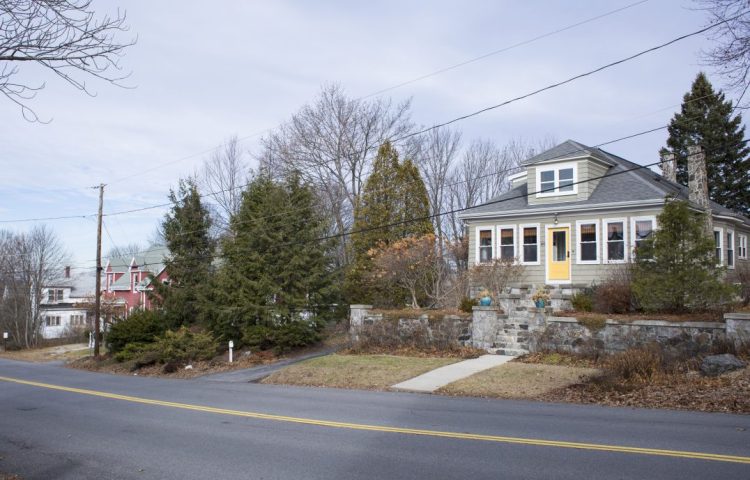SOUTH PORTLAND — As the City Council prepares to pass regulations for divisive Airbnb-style home rentals, a supporter has started an online campaign to raise $25,000 to fight the regulations in court.
After nearly five months of heated debate, the council is due to take a first vote Tuesday on proposed ordinance amendments that would rein in the spread of short-term rentals in residential neighborhoods. A second and final vote would be taken on Feb. 20.
The proposal would allow owner-occupied or “hosted home stays” throughout the city, but it would ban from all residential zones any “non-hosted home stays” that don’t have an owner on the premises.
All short-term rentals would have to be registered, inspected, insured and subject to fines and possible closure if they didn’t follow the rules.
The proposal also says that “the city is committed to defending and enforcing” the regulations, including hiring legal experts to fight any challenges in court. The line was included at the request of Councilor Claude Morgan, whose seaside district has been inundated with short-term rentals.
“I want folks to know we mean to defend our right to regulate what goes on in our neighborhoods,” Morgan said.
Five days ago, Margaret Birlem of Cape Elizabeth started a GoFundMe campaign to raise $25,000 for a “ShortTerm Rental Legal Defense Fund.” By Monday afternoon it had raised $2,800. Birlem said a group of short-term rental operators has already contributed $5,000 to the fund.
“South Portland is perilously close to passing a ban on almost all short-term rentals in the city,” the campaign page says. “Contribute now to keep South Portland open to the positive contributions that short term rentals provide!”
LIVELIHOODS AT STAKE
Birlem and her partner own a two-family home on Preble Street, near Willard Beach, that they rent for both short- and long-term stays.
Birlem said her family would lose thousands of dollars in reservations and a significant portion of their annual income if the city goes through with these regulations. She questioned the motives of councilors who seemed opposed to short-term rentals from the start and said she hopes they allow a grace period to limit the impact on guests and operators.
“This wasn’t a process that worked,” Birlem said. “At least help us get through this.”
South Portland is the latest U.S. city to wrestle with this issue, along with neighboring Portland.
There are 282 short-term rentals in South Portland, according to Host Compliance, a third-party web service. About 200 of them are single-family homes that are not owner-occupied, allowing travelers to rent a whole house or apartment for a few days or a few weeks.

A number of short-term rentals were available in the eastern end of South Portland through Airbnb on Tuesday – just a fraction of the 282 total currently available throughout the city on short-term rental websites, according to Host Compliance, a third-party web service.
City officials hope to stop people from buying, renovating and renting out year-round homes to transient guests in a community that’s struggling to increase affordable housing and preserve neighborhoods.
“The City Council hereby finds that unregulated short-term transient occupancy of dwelling units in residential neighborhoods presents a threat to the public welfare,” the proposed amendment says.
The proposal aims “to balance the desire of property owners to rent their residential properties to short-term rental guests for compensation against the desire of residents to preserve the traditional peace and quiet of their residential neighborhoods.”
It’s also written to protect the livability of residential neighborhoods “from the nuisance impacts that are often associated with short-term rentals” and “to prevent long-term rentals from being replaced with short-term rentals.”
“The short-term rental industry is squeezing folks out of our neighborhoods,” Morgan said. “We’ve heard tearful stories from people whose long-term leases weren’t renewed because their homes or apartments were converted to short-term rentals. We heard from people who tried to buy a house in South Portland for years, only to be outbid by short-term rental folks every time.”
PROTECTING NEIGHBORHOODS
Under the proposed ordinance amendment, hosted home stays would be allowed in single- or two-family homes, while non-hosted home stays would be limited to single-family homes in non-residential areas.
Hosted home stays would be allowed to have only two guests and one child under age 2 at any time, while non-hosted home stays would be allowed to have two guests and one child under age 2 in each bedroom.
Operators of hosted home stays would have to prove it’s their primary residence by showing they receive the Homestead Exemption on their property taxes.
While all short-term rentals are for less than 30 consecutive days, hosted home stays would have no frequency or duration limits, while non-hosted home stays would be limited to one rental per week, said City Manager Scott Morelli.
When registering with the city clerk, operators also would have to show proof of property and liability insurance, sketch plans for parking and building layout, a completed self-inspection checklist and emergency contact information, among other requirements.
Violations would be investigated by the code enforcement officer and subject to fines of $500 to $1,500 per day, depending on the offense. Validated violations also could lead to denial, revocation or suspension of the right to operate.
If the regulations are approved, operators would be expected to stop taking reservations for short-term rentals that violate the ordinance. Legal rentals would have to register by April 15 and operate under the new ordinance starting June 1.
Kelley Bouchard can be contacted at 791-6328 or at:
kbouchard@pressherald.com
Twitter: KelleyBouchard
Send questions/comments to the editors.




Comments are no longer available on this story